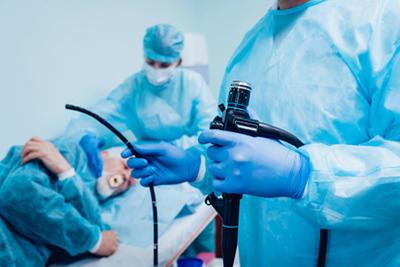Upper Endoscopy Explained: A Comprehensive Guide to the Procedure
posted: Aug. 09, 2024.

Your digestive system is more than your stomach. It includes your esophagus, pancreas, intestine, liver, and colon. When you're having digestive issues ranging from too much gas to pain to bleeding, your doctor must evaluate it properly. When you need an endoscopy in Manhattan & New York, NY, it is time for a consultation at the office of Dr. Moshe Rubin.
Why Do You Need an Endoscopy in Manhattan & New York, NY?
The point of an endoscopy is to thoroughly check your upper digestive tract. It gives Dr. Rubin a close view of the inside of your esophagus, stomach, and small intestine. This procedure is for anyone dealing with chronic stomach pain, difficulty swallowing, excessive acid reflux, or bleeding. Your doctor will search for signs of ulcers, inflammation, anemia, or digestive cancers.
What Happens During the Process?
As the procedure begins, you lie on your side. Your doctor will sedate you, so you will be unconscious during the exam. He may also use a throat numbing spray, so your throat won't be too hoarse from the tube. Once you are asleep, he will insert a long tube with a camera attached down your throat and navigate it throughout your esophagus, stomach, and upper intestine. If your doctor sees something suspicious, he can take a biopsy and see if the growth is benign or malignant.
Once the procedure is over, you will gradually awake from sedation. Prepare to sit for about an hour after the exam. Your doctor will likely review your results immediately, or you may choose to come back for a consultation. Expect to return later if your doctor finds something suspicious that requires a biopsy.
How Do Patients Prepare for It?
When you have this procedure done, you should avoid eating eight hours beforehand. You should also have someone with you to drive you home, as it is not safe to do so after sedation.
It's ideal to ensure the rest of your day is clear, so you can go home and rest. You may need to rest for the next day as well. The procedure is pain-free, but you may have some discomfort from the presence of the tube and air filling your interior during the process. Give your esophagus arrest by eating soft foods, like soup or liquids for the next day or two.
Dr. Rubin is your local specialist you can rely on for an endoscopy in Manhattan & New York, NY. He has the advanced tools needed to give you a proper diagnosis. Call us at (212) 772-1012 to learn more about the process and schedule a consultation.